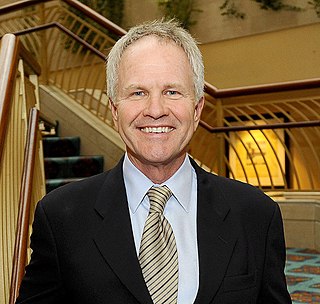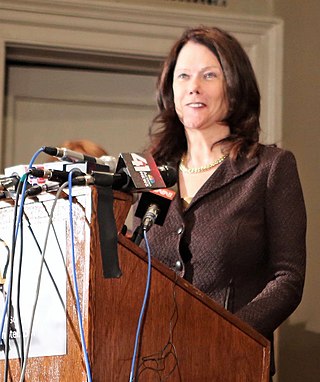In the law of torts, malpractice, also known as professional negligence, is an "instance of negligence or incompetence on the part of a professional".
Medical malpractice is professional negligence by act or omission by a health care provider in which the treatment provided falls below the accepted standard of practice in the medical community and causes injury or death to the patient, with most cases involving medical error. Claims of medical malpractice, when pursued in US courts, are processed as civil torts. Sometimes an act of medical malpractice will also constitute a criminal act, as in the case of the death of Michael Jackson.

Personal injury is a legal term for an injury to the body, mind, or emotions, as opposed to an injury to property. In common law jurisdictions the term is most commonly used to refer to a type of tort lawsuit in which the person bringing the suit has suffered harm to their body or mind. Personal injury lawsuits are filed against the person or entity that caused the harm through negligence, gross negligence, reckless conduct, or intentional misconduct, and in some cases on the basis of strict liability. Different jurisdictions describe the damages in different ways, but damages typically include the injured person's medical bills, pain and suffering, and diminished quality of life.

Non-economic damages caps are tort reforms to limit damages in lawsuits for subjective, non-pecuniary harms such as pain, suffering, inconvenience, emotional distress, loss of society and companionship, loss of consortium, and loss of enjoyment of life. This is opposed to economic damages, which encompasses pecuniary harms such as medical bills, lost wages, lost future income, loss of use of property, costs of repair or replacement, the economic value of domestic services, and loss of employment or business opportunities. Non-economic damages should not be confused with punitive or exemplary damages, which are awarded purely to penalise defendants and do not aim to compensate either pecuniary or non-pecuniary losses.
Robert A. Clifford is a Chicago trial lawyer and principal partner at Clifford Law Offices. Clifford's firm specializes in "personal injury, medical malpractice, mass torts, consumer and health care fraud, product liability, and aviation and transportation disasters." He attended DePaul University for both his undergraduate work and Juris Doctor, finishing in 1976. The firm was founded in 1984 to represent plaintiffs in personal injury and wrongful death cases.
A personal injury lawyer is a lawyer who provides legal services to those who claim to have been injured, physically or psychologically, as a result of the negligence of another person, company, government agency or any entity. Personal injury lawyers primarily practice in the area of law known as tort law. Examples of common personal injury claims include injuries from slip and fall accidents, traffic collisions, defective products, workplace injuries and professional malpractice.
The Medical Injury Compensation Reform Act (MICRA) of 1975 was a statute enacted by the California Legislature in September 1975 and signed into law by Governor Jerry Brown in September. This Act was intended to lower medical malpractice liability insurance premiums for healthcare providers in California by decreasing their potential tort liability.
Legal malpractice is the term for negligence, breach of fiduciary duty, or breach of contract by a lawyer during the provision of legal services that causes harm to a client.

Tort reform consists of changes in the civil justice system in common law countries that aim to reduce the ability of plaintiffs to bring tort litigation or to reduce damages they can receive. Such changes are generally justified under the grounds that litigation is an inefficient means to compensate plaintiffs; that tort law permits frivolous or otherwise undesirable litigation to crowd the court system; or that the fear of litigation can serve to curtail innovation, raise the cost of consumer goods or insurance premiums for suppliers of services, and increase legal costs for businesses. Tort reform has primarily been prominent in common law jurisdictions, where criticism of judge-made rules regarding tort actions manifests in calls for statutory reform by the legislature.

James Lewis Wilkes, II is an American lawyer. Born in Tampa, Florida, he is known for his advocacy on behalf of nursing home residents who have been victims of abuse.
Neglect is defined as giving little attention to or to leave undone or unattended to, especially through carelessness. Mortuary neglect can comprise many things, such as bodies being stolen from the morgue, or bodies being mixed up and the wrong one was buried. When a mortuary fails to preserve a body correctly, it could also be considered neglect because of the consequences.

Landeros v. Flood was a 1976 court case in the state of California involving child abuse and alleged medical malpractice.

Kathleen Zellner is an American attorney who has worked extensively in wrongful conviction advocacy. Notable clients Zellner has represented include Steven Avery, Kevin Fox, Ryan W. Ferguson, Larry Eyler, and 19 exonerees who are listed in the National Registry of Exonerations.
Philip Harnett Corboy was an American trial lawyer who was involved in personal injury, wrongful death and medical malpractice cases across the United States for more than half a century. He founded the Philip H. Corboy & Associates law firm which later became Corboy & Demetrio. Former Loyola University Chicago School of Law Dean, David Yellen, stated: "There are very few living lawyers who have had the kind of impact Phil Corboy has. He largely transformed the practice of personal injury law. He was a teacher and mentor to a couple of generations of leading lawyers in the country." His career was featured in a cover article in Chicago Lawyer entitled "Corboy College: Chicago Trial Lawyers' Alma Mater".
Brad Lowber Hendricks is an American attorney, former President of the Arkansas Trial Lawyers Association, and President of The Brad Hendricks Law Firm, one of the largest firms in the State of Arkansas. He is the son of Lowber Hendricks, a prominent Arkansas attorney and Pulaski County Circuit Court Judge. Brad's decision to become an attorney is largely attributed to his father, Lowber Hendricks. His siblings are Karol Anne McNutt and Bryan Hendricks.
Patrick A. Malone is a trial lawyer and author based in Washington, D.C. Malone co-developed a trial advocacy method called "Rules of the Road".

Staci Michelle Yandle is a United States district judge of the United States District Court for the Southern District of Illinois.

Medical malpractice is a legal cause of action that occurs when a medical or health care professional, through a negligent act or omission, deviates from standards in their profession, thereby causing injury or death to a patient. The negligence might arise from errors in diagnosis, treatment, aftercare or health management.

Ted M. Warshafsky was a personal injury lawyer and activist best known for establishing the successful Warshafsky Law Firm in Milwaukee, Wisconsin and nominating Julian Bond as the first African American major-party candidate for Vice President of the United States.
Joseph Cammarata is an American attorney mainly known for handling the high-profile case against President Bill Clinton, in which he represented Paula Jones in a sexual harassment lawsuit against President Clinton. Cammarata also represented seven women who alleged they were sexually assaulted by Bill Cosby in a defamation lawsuit.








